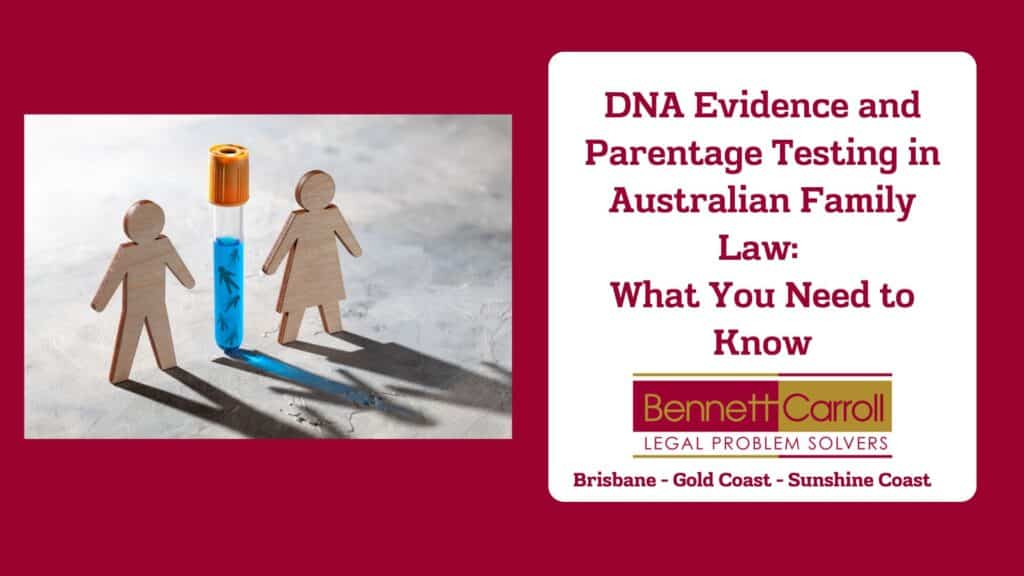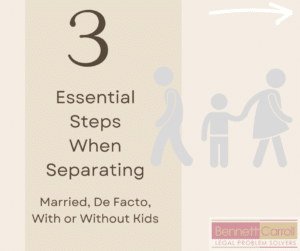Parentage disputes are a unique and sensitive issue in Australian family law, often requiring the use of DNA evidence and parentage testing to determine the biological parent of a child. These processes play a crucial role in cases involving child support, inheritance, and parental responsibility, helping courts make informed decisions that protect all parties involved. DNA testing has become a reliable and standard method for establishing parentage in these disputes. This article explores the role of parentage testing in family law, how DNA evidence is used in court, and what parents need to know about the process.
When Is Parentage Testing Used in Family Law?
Parentage testing, often referred to as paternity testing, may be requested in various family law situations, including:
- Child Support Disputes: When a parent disputes their obligation to pay child support due to doubts about their biological relationship with the child, the court may order DNA testing to establish parentage.
- Parental Responsibility and Parenting Orders: Parentage can also be a factor in disputes over custody, visitation rights, and parental responsibility. A confirmed biological relationship can impact the court’s decision on these matters.
- Inheritance and Estate Disputes: DNA evidence may be required to establish parentage in cases involving inheritance claims or disputes over a deceased person’s estate.
- Birth Certificate Amendments: If there is uncertainty about the identity of a child’s biological parent, DNA testing can be used to support an application to change the details on the child’s birth certificate.
How DNA Testing Works
In Australia, DNA testing for parentage typically involves collecting a sample of cells from the inside of the mouth (a buccal swab) from the child and the alleged parent(s). The samples are then sent to an accredited laboratory for analysis. The lab compares the DNA profiles to determine whether there is a biological relationship.
DNA testing is highly accurate, with results showing a 99.9% certainty for a positive match. When the result excludes a person as the biological parent, the accuracy is 100%.
Court-Ordered Parentage Testing
In family law disputes, if there is disagreement about parentage, the court has the power to order DNA testing under the **Family Law Act 1975**. When a court orders a parentage test, the parties involved must comply with the testing process. Refusal to participate can lead to legal consequences, such as the court making a determination based on the available evidence, which may not be in favour of the non-compliant party.
The court may direct that testing be conducted by a laboratory accredited by the National Association of Testing Authorities (NATA) to ensure the results are reliable and admissible in court.
Legal Implications of DNA Results
The results of a DNA test can have far-reaching implications in family law cases. If a test confirms that the alleged parent is the biological parent, this can lead to legal obligations such as child support payments and the granting of parental responsibility. On the other hand, if the test excludes a person as the parent, it may relieve them of any legal responsibilities.
It is important to note that, in family law, biological parentage is not the only factor that determines a person’s legal obligations and rights. For example, in cases where a person has acted as a parent to a child, the court may still consider them to have parental responsibilities, even if DNA testing shows they are not the biological parent.
Confidentiality and Consent
DNA testing for parentage in family law matters must be conducted with strict confidentiality. The results are only shared with the parties involved and the court. Consent is also a key factor; typically, both parties must agree to the testing, or the court must order it. In the case of minors, the court will also consider the child’s best interests when ordering DNA testing.
Conclusion: The Role of DNA Evidence in Family Law
Parentage testing and DNA evidence are critical tools in resolving family law disputes, offering clarity in sensitive matters such as child support, custody arrangements, and inheritance claims. If you’re navigating a parentage dispute in Brisbane, the Gold Coast, or the Sunshine Coast, our experienced family lawyers in South East Queensland are here to help.
With offices conveniently located in these areas, we provide expert guidance on DNA evidence, court-ordered parentage testing, and your legal rights. Contact Bennett Carroll Solicitors today to book a consultation and take the first step toward resolving your family law matter.

For additional insights on parentage testing and DNA evidence, check out these resources:
- Australian Government Child Support Agency
- National Association of Testing Authorities (NATA)
- Family Law Act 1975
Related Articles from Our Website








